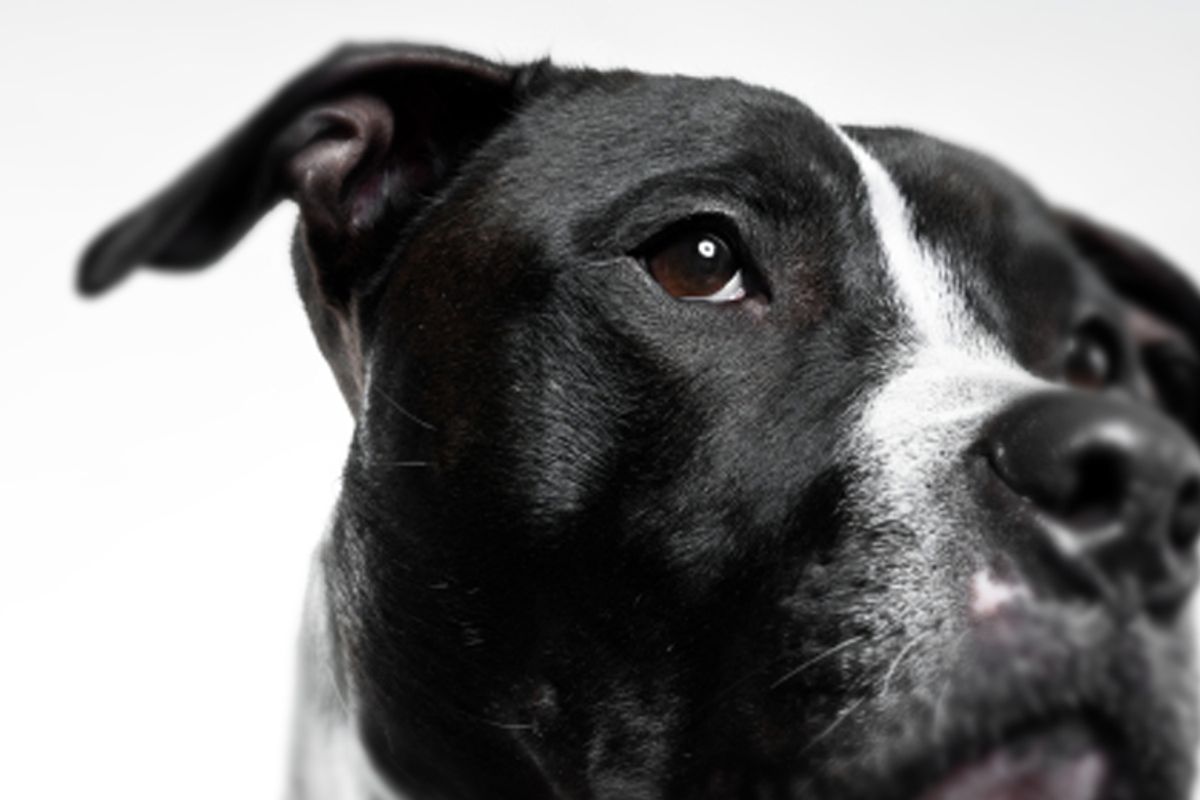On Monday, as I walked my dogs through our neighborhood in the Lower Ninth Ward of New Orleans, an enormous flock of seagulls accompanied us in the sky, swooping down to the streets, scavenging for food along the gutters, and screeching to each other with alarm. It isn't unusual to see gulls around town, but this was an unusually large number, and I imagined they had been chased inland by the growing Gulf oil spill, the same way they get chased in by hurricanes or other enormous storms.
We are used to displacement here. We still measure things as before or after Katrina, as if there is somehow a possibility of moving back in time and slipping into the still familiar order of life before the storm. Perhaps that is why I regarded the misplaced gulls as simply a fact rather than a tragedy. Or more likely I was distracted by the fact that for one of the gaggle of dogs at the end of the leash, this would be a final walk before going to the vet to be put down.
This was new to me. In spite of volunteering in make-shift shelters after Katrina, and the dozens of pit bulls I rescued since the storm, I always managed to avoid this final part of the story. There were dogs that you knew weren't going to make it, but this time I would be in the room. I wanted the dog in question to have the best day possible, and I wanted to pretend that I was ready for this, too. I wanted to pretend that I was thinking clearly, and that none of my judgment had been clouded by any of the growing mess around us, the oil spill in the ocean, and my own mysteriously deteriorating heart.
It had been just two weeks since I had returned home after suffering an arrhythmia at the gym, being defibrillated by EMTs, and spending nearly a week trapped in the overflow wing of an incompetent hospital waiting for someone to do the tests that would establish what was wrong and send me home with a new pacemaker, an internal defibrillator and a variety of medications, including Rush Limbaugh's favorite pain pills. In my mind I plotted the course of the events, trying to establish a timeline: the collapse of my heart function, the explosion off at sea, the daily hemorrhaging of 200,000 gallons of oil into our fragile ecosystem and economy, and the life of a dog.
While I was walking the dogs, another class of New Orleanians were gathered downtown, celebrating the inaugural of Mayor Mitch Landrieu, who we all hope will turn things around simply by virtue of his not being C. Ray Nagin. It was a day of celebration, but the oil spill was on everyone's mind -- what would be lost, what would be required of us.
Later in the day, the vet would come into the room where I cradled the dog in my arms. "Just let me know when you are ready," he would say, and I would answer, "We're ready," not because we were, but because there wasn't any other option. Are you ready for another evacuation? Are you ready to rebuild the city? Are you ready to volunteer to clean? We always answer yes, not because we are actually ready, but because we have no choice if we want to move on. Perhaps it is this bravado that confuses the more simple-minded people like Rush Limbaugh, who earlier this week suggested pain pills as a solution to the BP mess, or the Los Angeles Times, who recently published a story with the headline, "Gulf oil spill: The Big Easy takes the news with a shrug." It isn't lack of caring that makes us act this way; it is caring perhaps too much.
Life in New Orleans has a wide dynamic range, with elaborate celebrations merging imperceptibly with tragedy on a daily basis. Over the past two weekends, people crowded the Fairgrounds for the second weekend of the New Orleans Jazz and Heritage Festival, loading up on music and particularly on seafood, aware that it might be a long time before we have it again. There's something a bit off about eating excessive amounts of seafood for fear that the creatures will be killed at sea, but that didn't stop anyone. I sampled crawfish enchiladas, crawfish bisque, bowls of gumbo, oyster salad and on the way home, picked up three pounds of fresh Louisiana shrimp which I immediately froze to unpack and cook at some future date.
We have, as a region, learned in the last few years how to weather a disaster that has no clearly defined end. You try to remain poker-faced. You try to focus on moving ahead. You try to act certain of what to do, even as the news provides an animation of your entire coastline turning from blue to black. Even as you watch the life drain from a dog that you loved. So I returned to clock into work at NOCCA, the high school for creative arts, and was greeted by a colleague who recognized my cracked expression and asked, "How are you doing?" There was no point in lying any more. "Kind of awful," I said. "Is it the oil spill?" she asked. "Maybe," I said. "Maybe it is."
Ken Foster is the author of a memoir, "The Dogs Who Found Me," a collection of stories, "The Kind I'm Likely to Get," and essays, "Dogs I Have Met."

Shares